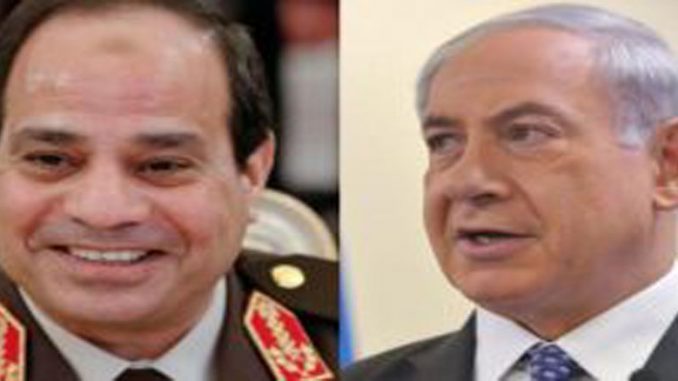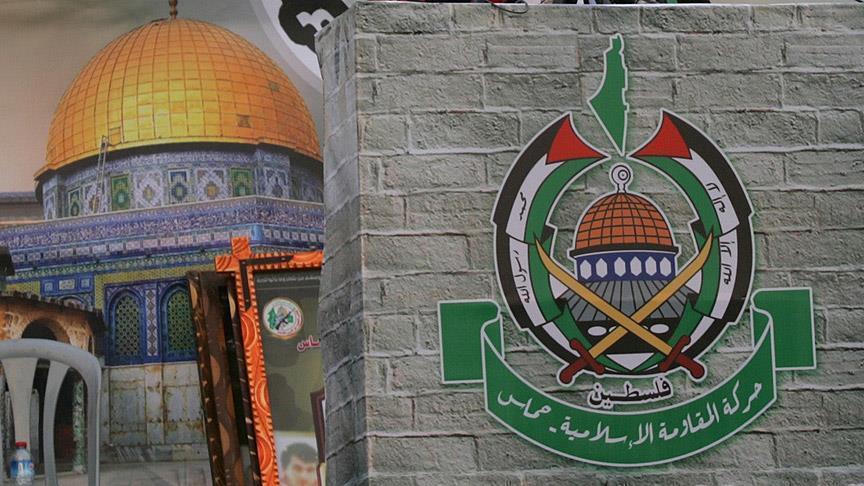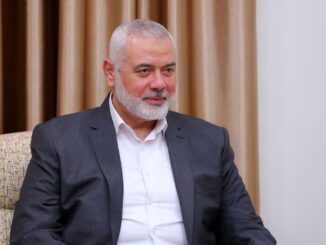
Since the military coup in 2013 that ousted Egypt’s first democratically elected president Mohamed Morsi and replaced him with erstwhile General Abdel Fattah al-Sisi,” the dynamic – at least at the official level – has changed. Cooperation on the Sinai has largely driven the improvement in relations, according to David Schenker, the director of Program on Arab Politics at Washington Institute.
In an interview with The Cipher Brief, David Schenker revealed that the cooperation between Israel and Egypt was mainly focused on the economic and security levels. During the interview, Schenker revealed the unprecedented bilateral relations between Egypt and Israel after al-Sisi stole power through a military coup.
The security cooperation
The Egyptian-Israeli security cooperation has flourished in an unprecedented way over the past three years.
David Schenker said that as security conditions deteriorated in Sinai, “Israel and Egypt have worked closely to combat the burgeoning insurgency in the peninsula over the past three years.”
At the most basic level, Israel has allowed modifications to the security annex of the Camp David Accords.In two dozen occasions” Israel allowed Egypt to deploy troops and equipment, including aircraft that were previously prohibited by the treaty,” said David Schenker.
On the other hand, the Israeli Air Force is taking part in the attacks against ISIS in Sinai and the IDF’s Military Intelligence Unit 8200 is assisting Egyptian forces to collect and decipher information about Sinai Province, according to foreign reports.
In this context, it has been revealed that Israeli drones have been given permission by the Egyptians to strike targets in the Sinai Peninsula. This claim came one week after similar remarks that were made by a retired Israeli official, who revealed that Israel’s drone attacks during the previous year were planned in full cooperation with the Egyptian army.
In addition, intelligence sharing about threats in the peninsula is also boomed– in 2016 Major General Yair Golan, Israel’s Deputy Chief of Staff, described it as “unprecedented.”
Moreover, Israel and Egypt also appear to be cooperating more closely beyond the intelligence sharing and the revisions to Camp David. According to Schenker, Israel and Egypt have cooperated on the borders mainly in detecting and destructing tunnels from the peninsula into Gaza.
The Egyptian regime and Israel have claimed that these tunnels are utilized by Hamas, among others, to smuggle weapons and personnel.
Furthermore, the most notable security cooperation between both countries mentioned by David Schenker that “Egypt has reportedly allowed Israel carte blanche to deploy unmanned aerial vehicles (UAVs) over the Sinai, with the authority to target Islamist militants at will.”
Political cooperation
David Schenker has also mentioned in his interview that the political cooperation between both countries has boosted recently although peace between the Israeli and the Egyptian people hasn’t developed as hoped.
He said that it appears that “Relations between the leaders of the states are excellent.”
Based on various media reports, the Israeli Prime Minister Benjamin Netanyahu and al-Sisi talk frequently with one another. Some articles even said that they talked “as much as once a week.”
In the same context, al-Sisi sent his foreign minister, Sameh Shoukry, to Jerusalem, to meet with Netanyahu in 2016. Egypt’s foreign minister visit to Israel, which was the first such in nine years, inferred the development in diplomatic relations between both countries.
Schenker explained that both Netanyahu and al-Sisi have common views regarding few key issues beyond fighting the insurgency in Sinai. One of the main issues that both countries have common views on considering “Hamas as a threat.”
Moreover, al-Sisi has advocated peace talks between Israel and the Palestinians,” which consistent with Israeli interests, do not involve European mediators,” according to Schenker.
On the other hand, Netanyahu appears poised “to cut a deal with Egypt to lower the amount of money Egypt owes Israel – by half – for breaking the longstanding natural gas deal.”
Netanyahu also has been an outspoken advocate to defend an increasingly unpopular Egypt in Washington. Schenker said that it is “Not surprisingly when Netanyahu speaks about Sisi, he is typically effusive.”
It is noteworthy that the day-to-day relationship has been managed by the Director of Policy and Political-Military Affairs at the Ministry of Defense Major General (Res.) Amos Gilad who is responsible for security relations with regional partners.
Schenker said that even as Gilad is retiring, given the import assigned to this relationship by the countries’ leaders, “there is little doubt the good vibe will continue.”
Economic cooperation
On the economic level, Egypt’s Qualified Industrial Zones(QIZs), where products with Israeli and Egyptian content can be sold duty free in the United States, is on the top of the bilateral economic ties between both countries.
In these QIZs, some 700 companies are currently operating employing 280,000 Egyptians.
According to Schenker,”Proceeds from the QIZs reportedly account for 45 % of Egypt’s exports to the U.S., or about $ one billion per year. ”
It is noteworthy that before January Revolution in 2011, some of the more significant economic ties between the states was natural gas.
Israel used to buy up to seven billion cubic meters of natural gas from Egypt per year, but the arrangements ended as a result of security deterioration in Sinai resulted in frequent acts of sabotage of the pipelines.
“With the discovery of significant reserves of natural gas off the Israeli coast, there is a discussion about Egyptian facilities being used to liquefy Israeli natural gas, but this remains a distant prospect.” said Schenker.
Moreover, tourism has been another historically mutually beneficial economic sector. Nearly a quarter of a million Israelis visited Egypt in 2010, but Egyptian visitors, as a rule, do not travel to Israel.
But terrorism in Sinai in recent years has led to a more than 50 % decline in Israeli tourists though Israeli tourism to Egypt was never a significant percentage of the overall number of tourists.
The future of the Egyptian-Israeli cooperation
In his interview, David Schenker expected that the cooperation between both countries will continue with probability of enhancing the strategic collaboration in Sinai but it is “opaque” as he described.
He believes that as the Israeli-Egyptian cooperation clearly benefits both states, the optics of this cooperation are a political liability for Sisi with his constituency. “With Egypt in economic crisis and Sisi’s popularity at home waning, it will be difficult to increase visible cooperation with Israel, “said Schenker.
For Egypt , it will try to revive its regional influence, which has declined recently, by providing assistance to Israel with the Palestinians.
“In recent years, Egypt’s regional influence has been declining, so Cairo would no doubt welcome the opportunity to reengage on the peace process to raise its international profile,” according to Schenker.
On the other side, “the apparently good working relationship between Sisi and Netanyahu, the Israeli Government would likely not object to Egyptian mediation efforts, “said Schenker.
Moreover, there are two other sectors, water and gas, that would witness a boost on potential cooperation between both countries.
Regarding water, Egypt is facing one of its harshest water challenge in its all history especially after Ethiopia ends the establishment of the Renaissance Dam that will probably have negative repercussions on Egypt’s water share from the Nile River.
“The biggest problem in this regard is water wastage, an issue that Israel has enormous expertise in solving,” said Schenker.
Egypt would benefit from Israel highly advanced desalinization technologies, which it has employed to alleviate its own water scarcity.
According to Schenker, the notion of Israeli desalinization plants in Egypt may be a bridge too far, “some of the less high-profile Israeli water-saving and recycling technologies could be transferred.”
This quite explains the recent media report published by Middle East Observer(MEO) last November which was able to get exclusive photos from the site of building 6 news tunnels in Sinai.
MEO revealed that the construction companies belong to the army in addition to few private companies, including Orascom, which is owned by the Sawiris family, an economic tycoon close to the government.
The Egyptian government has announced that they are building 4 tunnels, 1 for railway and 3 for cars but haven’t announced anything related to the other 6 tunnels.
The report reported that the Egyptian military has begun to pump water from the Mediterranean Sea into underground smuggling tunnels that connect Gaza Strip with Egypt, security officials and eye-witnesses said.
The operation is a cooperation between Israel and Egypt and is said to aim at ending smuggling to the Palestinian territory.
It seems that the cornerstone for water cooperation between Egypt and Israel has been set on the ground.
Regarding gas, Egypt has excess capacity in its liquefied natural gas(LNG) plants, which Israel might find useful. Israel’s use of these facilities could prove financially beneficial to both countries.
Last August, Eni’s CEO Claudio Descalzi said that Egypt will be able to create a hub of energy with Israel and Cyprus, and even Libya in the future, regarding the recent Zohr field discovery in its exclusive economic zone (EEZ), in an interview with Bloomberg.
Zohr field is the biggest gas discovery in the Egyptian Mediterranean Sea.
Regarding how the matter affects the politics in the Middle East, Descalzi specifically told Bloomberg: “Egypt will export energy.” He said that Israel & Cyprus will be one of those countries that would receive gas from Egypt and in the future from Libya.
As for the cooperation between Israel and Egypt, Descalzi said that the two countries need each other and can share their facilities and work together.
“When energy puts people together, it’s very positive. That could be a very positive case for friendship,” he said.
Despite the previous fears that Zohr filed discovery would harm Israel, but the latest statement of Eni’s CEO infers the fact that it would intensify the economic partnership between both countries as he mentioned that Israel would be one of the countries benefiting from that discovery.
In the same context, Descalzi told POLITICO newspaper at an earlier time in 2015 that the Egyptian facilities can be used to reduce the costs for Israel and Cyprus saying, “We can create an Eastern Mediterranean hub that can reduce the development costs for Cyprus and Israel, using the existing Egyptian facilities.”
He also said that the idea would be to connect sub sea fields in Israel and Cyprus to Egypt’s pipeline network.
In fact, in the light of the obvious cooperation between both countries under al-Sisi’s reign, it is unexpected that Egypt would harm Israel’s economy but instead, the big discovery would enhance the economic normalization between both countries.
Once the Mediterranean field was discovered, there was panic in Israel as they expected to export gas to Egypt. However, the Egyptian authorities calmed Israel at that time saying that the discovery of the Zohr natural gas field off Egypt will not undermine the private-sector negotiations about buying gas from Israel. Egyptian authorities also said that the negotiations between private companies in Egypt and in the eastern Mediterranean- Israel and Cyprus-will not stop.



